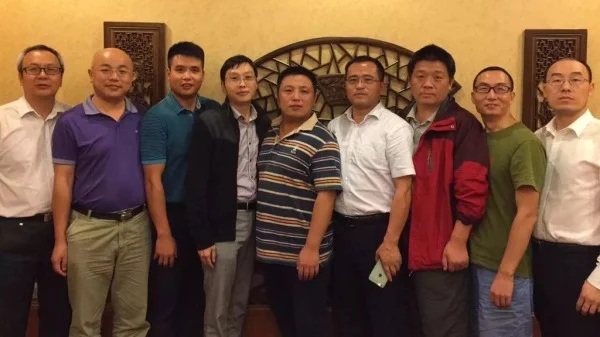When former Chinese criminal defense attorney Wu Lei stepped into China’s prisons and detention centers, he didn’t just see cells and legal files — he witnessed human suffering so deep it haunted his dreams. From wrongful executions to brutal interrogations, from family separations to a justice system hollowed out by corruption, Wu’s account reveals a chilling reality: beneath the polished exterior of China’s legal system lies a machinery designed not for justice, but for control.
Wu Lei’s experience spans more than just cases — it reaches into the darkest corners of China’s justice system. One of the most haunting stories he tells is that of Li Zhanshuang, a teenager from Inner Mongolia. In 2012, Wu was approached by Li’s mother to handle a death penalty appeal after her son had killed another inmate in prison. The reason? Li was trying to die, driven to the edge by years of torture and extortion behind bars.
In his investigation, Wu uncovered a web of corruption. Bribes were standard practice — bottles of white liquor sold openly in plastic water bottles, and inmates beaten under the watchful eyes of guards unless “protection money” was paid. Families were instructed to wire funds directly into the guards’ bank accounts to ensure the safety of their loved ones. But Li’s family was poor. With no money to buy peace, he was left to suffer in a lawless environment that eventually broke him.
Wu exposed his findings to every major judicial body — the Central Commission for Discipline Inspection, the Supreme Court, and the Ministry of Justice. But the system remained silent. Li was executed. “I hate this so-called justice system,” Wu wrote. “It devours people.”

Heartbreak behind bars: The cost of separation
Another painful encounter came in a prison in Guizhou. Wu met a man who had been incarcerated for 10 years and hadn’t seen his wife or children in five years. When asked why, the man replied: “It costs 1,000 yuan for a visit. My wife needs a month of odd jobs to save that much.”
Wu was shaken. Returning to Beijing, he quietly raised the funds for the family’s next visit. Though the man was eventually exonerated five years later, nothing could return the lost years of separation from his children. These were the invisible scars that no verdict could reverse.
Tortured into silence: A case from Jilin
In Jilin Province, Wu encountered a Korean-Chinese man who had spent over two decades in prison for a crime he didn’t commit. He was eventually acquitted — but only after enduring horrific torture. Beaten until his flesh tore, bones cracked, and nerves went numb, he described reaching a point where he couldn’t even feel pain anymore — only the despair of not being able to die.
His wife once paid police to see him, but he was so disfigured she didn’t recognize him. Wu remembered finding the man curled in a corner, barely human. “I couldn’t get that image out of my head,” he wrote. “He was broken beyond recognition.”
Despite appeals and petitions, Wu said the system responded with cold indifference. “It wasn’t just the torture,” he wrote. “It was the silence afterward.”
A flicker of hope in the darkness
Amid the despair, Wu also witnessed moments of unexpected humanity. In the high-profile Chen Man wrongful conviction case, Wu confronted the prison warden at Meilan Prison, demanding full access to his client. Instead of stonewalling, the warden sighed deeply and allowed Wu full visitation — an act of quiet defiance within the system. A young guard even offered Chen a cigarette during their meeting.
“In prison,” Wu wrote, “a guard handing a cigarette to a prisoner is a huge sign of respect.” In that moment, Wu saw a glimmer of what could be possible — even in a broken system.

What the justice system is
Wu’s most damning critique comes from a woman who spent three years in pretrial detention. She said plainly: “I never saw a single successful appeal here. The police, the prosecutors, the judges — they’re all liars, thugs, and executioners.”
To Wu, her words captured the rotten core of China’s judicial theater. “The courts, the lawsuits, the lawyers — they’re just Western ornaments stolen and misused,” he wrote. “There’s no rule of law. Not even close.”
He particularly criticized the “anti-crime campaign” launched in 2018, likening it to a “Cultural Revolution for the economy.” Targeting private entrepreneurs, it destroyed massive portions of China’s private sector, all under the guise of reform. “There are wrongful convictions everywhere, petitioners everywhere,” he wrote. “This isn’t progress. It’s a collapse.”
Why these stories must be told
Wu admits the memories torment him. He dreams of his clients begging for help, of battles in court he couldn’t win. He carries the weight of their trust — and the pain of their families. “I can’t forget their eyes,” he writes. “I write because I’m afraid people will forget. Forget the pain. Forget the truth.”
For Wu, the point isn’t just to grieve. It’s to expose, to resist the illusion that things are normal. “People might be fooled by surface prosperity,” he warns. “But don’t be deceived. This is what China’s justice system is — it eats people alive.”
Follow us on X, Facebook, or Pinterest

